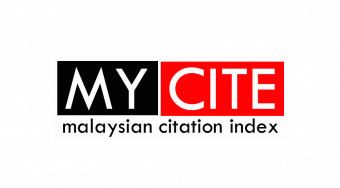KETAGIHAN TELEFON PINTAR DAN KETAGIHAN INTERNET SEBAGAI PERAMAL KEPADA HUBUNGAN SOSIAL DALAM KALANGAN PELAJAR UNIVERSITI MALAYSIA TERENGGANU
DOI:
https://doi.org/10.46754/umtjur.v4i2.275Keywords:
Telefon pintar, ketagihan Internet, hubungan sosial, universiti, pelajarAbstract
Ketagihan teknologi merupakan suatu fenomena yang membimbangkan yang boleh mempengaruhi kesejahteraan individu. Tujuan kajian ini adalah untuk mengkaji ketagihan telefon pintar dan Internet sebagai faktor peramal kepada hubungan sosial dalam kalangan pelajar Universiti Malaysia Terengganu (UMT). Dengan menggunakan pensampelan rawak berstrata, seramai 300 orang responden menjawab soal selidik berkaitan dengan Smartphone Addiction Scale Short Version, Internet Addiction Test dan Social Connectedness Scale-Revised. Perisian Statistical Packages for Social Science (SPSS- Versi 25) digunakan untuk menganalisis statistik deskriptif dan inferensi. Hasil kajian menunjukkan bahawa hanya ketagihan Internet merupakan faktor peramal yang signifikan kepada hubungan sosial pelajar. Kajian ini turut membincangkan implikasi kajian dalam mengenal pasti faktor peramal yang paling dominan kepada hubungan sosial dalam kalangan pelajar universiti dan menyumbang kepada kesusasteraan ketagihan teknologi terutama yang melibatkan responden Pantai Timur.
References
Almagor, R. C. (2011). Internet History. International Journal of Technoethics, 2(2), 45 - 64. https://www.researchgate.net/ publication/215660523_Internet_History DOI: https://doi.org/10.4018/jte.2011040104
Bolle, C. (2014). “Who is a smartphone addict?” (Dissertation).
https://essay.utwente.nl/66307/1/Bolle%20 Colin%20-s%201246933%20scriptie.pdf
Brown, L. (2013). Social Connectedness Deficits in College Students with Schizotypy. (Doctoral Dissertation). https:// pdfs. semanticscholar.org/9e6c/bc9ed12d0be4 96ebb6be69dc8168e3113ce5.pdf
Choi, S. W., Kim, D. J., Choi, J. S., Ahn, H., Choi, E. J., Song, W. Y., Kim, S., & Youn, H. (2015). Comparison of risk and protective factors associated with smartphone addiction and Internet addiction. Journal of Behavioral Addictions, 4(4), 308 - 314. https://www. researchgate.net/publication/287808807 DOI: https://doi.org/10.1556/2006.4.2015.043
Dosselaar, C. V. (2017). Smartphone addiction? There’s an app for that! (Dissertation). https:// dspace. library.uu.nl/bitstream/ handle/1874/357359/MAThesis Smartphone Addiction Apps- Chloe VanDosselaar -4066537pdf?sequence=2&isAllowed=y
Garima, S. K., & Anita, P. S. (2014). The effect of internet addiction on depression, anxiety, social isolation and sleep pattern among youth. Indian Journal of Applied Research, 4(9), 507 - 511. https://pdfs.semanticscholar.org/c0a0/ cf79a53234aabad0a42873bc2b2f20ff53bb. pdf
Jennifer, I. (2018). Social implications of children’s smartphone addiction: The role of support networks and social engagement. Journal of Behavioral Addictions 7(2), 473 - 481. https://akademiai.com/doi/ full/10.1556/2006.7.2018.48 DOI: https://doi.org/10.1556/2006.7.2018.48
Khalid, A. (2017). Impact of internet on social connections in Family System: A surveystudy of residents in Lahore. Arts and Social Sciences Journal, 8(3), 1 - 6. https:// www.semanticscholar.org/paper/Impact-of- Internet-on-Social-Connections-in-Family- Khalid/6a30bbaa66543e0f747262ef22d737 6d30b9e10b
Kwon, M., Kim, D. J., Cho, H., & Yang, S. (2013). The smartphone addiction scale: Development and validation of a short version for adolescents. Plos One, Open Access, 8(12), 1 - 8. https://www. researchgate.net/publication/259589326 DOI: https://doi.org/10.1371/journal.pone.0083558
Luk, T. T., Wang, M. P., Shen, C., Wan, A., Chau, P. H., Oliffe, J., Viswanath, K., Chan, S. S. C., & Lam, T. H. (2018). Short version of the smartphone addiction scale in chinese adults: Psychometric properties, sociodemographic, and health behavioral correlates. Journal of Behavioral Addictions, 7(4), 1157 - 1165. https://www.ncbi.nlm.nih.gov/pmc/articles/ PMC6376375/ DOI: https://doi.org/10.1556/2006.7.2018.105
Mohammad, Q. A. (2017). Smartphone addiction: Critical Issues. Global Journal of Addiction Rehabilitation Medicine, 4(5). 001 - 002. https://juniperpublishers.com/ gjarm/GJARM.MS.ID.555646.php DOI: https://doi.org/10.19080/GJARM.2017.04.555646
New Research Press Briefing: Internet addiction: Review of Neuroimaging studies. (2014). https://www.psychiatry.org/newsroom/ news-releases/internet-addiction-review-of-neuroimaging-studies
Nik, N. A. A., Iza, S. S., Nor, A. H., & Norazilah, B. (2016). Disconnected marriage, connected internet: Exploring the internet addiction among married men and women in Selangor, Malaysia. Journal of Education and Social Sciences, 5(2), 157 - 165. https://www. researchgate.net/publication/317577071
Panova, T., & Carbonell, X. (2018). Is smartphone addiction really an addiction? Journal of Behavioral Addictions, 7(2), 252 - 259. https://www.researchgate.net/ publication/325744681 DOI: https://doi.org/10.1556/2006.7.2018.49
Ryding, F. C. & Kaye, L. K. (2018). “Internet Addiction”: A Conceptual Minefield. Int J Ment Health Addiction, 16, 225 - 232. Retrieved from https://www.ncbi.nlm.nih. gov/pubmed/29491771 DOI: https://doi.org/10.1007/s11469-017-9811-6
Saliceti, F. (2015). Internet Addiction Disorder (IAD). Procedia Social and Behavioral Sciences 19, 1372 - 1376. https://www. sciencedirect.com/science/article/pii/ S1877042815025525 DOI: https://doi.org/10.1016/j.sbspro.2015.04.292
Savci, M., & Aysan, F. (2017). Technological addictionsand social connectedness: Predictor effect of internet addiction, social media addiction, digital game addiction and smartphone addiction on social Connectedness. Journal of Psychiatry and Neurological Sciences, 30(3), 202 - 216. http://www.dusunenadamdergisi.org/ing/ DergiPdf/DUSUNEN_ADAM_DERGISI_ 43e6742f9eee4938a1cd926cb527588d.pdf DOI: https://doi.org/10.5350/DAJPN2017300304
Siew, M. C., Yee, A., Vasudevan, R., Sazlyna, M. S. L., Wan Aliaa, W. S., Yoke, L. F., & Fankee, H. (2015). Validation of a Malay version of the smartphone addiction scale among medical students in Malaysia. Plos One, Open Access, 10(10), 1 - 11. https:// www.ncbi.nlm.nih.gov/pmc/articles/ PMC4592235/ DOI: https://doi.org/10.1371/journal.pone.0139337
Sha, P., Sariyska, R., Riedl, R., Lachmann, B., & Montag, C. (2019). Linking Internet Communication and smartphone use disorder by taking a closer look at the Facebook and WhatsApp applications. Addictive Behavior Reports 9, 1 - 9. https:// www.sciencedirect.com/science/article/pii/ S2352853218301561 DOI: https://doi.org/10.1016/j.abrep.2018.100148
Taylor, K., & Silver, L. (2019). Smartphone Ownership Is Growing Rapidly Around the World, but Not Always Equally. https:// www.pewresearch.org/global/2019/02/05/ smartphone-ownership-is-growing-rapidly-around-the-world-but-not-always-equally/
Widyanto, L. & McMurran, M. (2004). The psychometric properties of the internet addiction test. Cyberpsychology & Behavior, 7(4), 443 - 449. https://www.researchgate. net/publication/8381344 DOI: https://doi.org/10.1089/cpb.2004.7.443
Wong, K. C., Tho, F. L., & Sin, H. N. (2015). Study of the relationship between smartphone addiction and loneliness among male and female undergraduates in Utar. (Unpublished dissertation). Universiti Tunku Abdul Rahman, Kampar, Perak.




